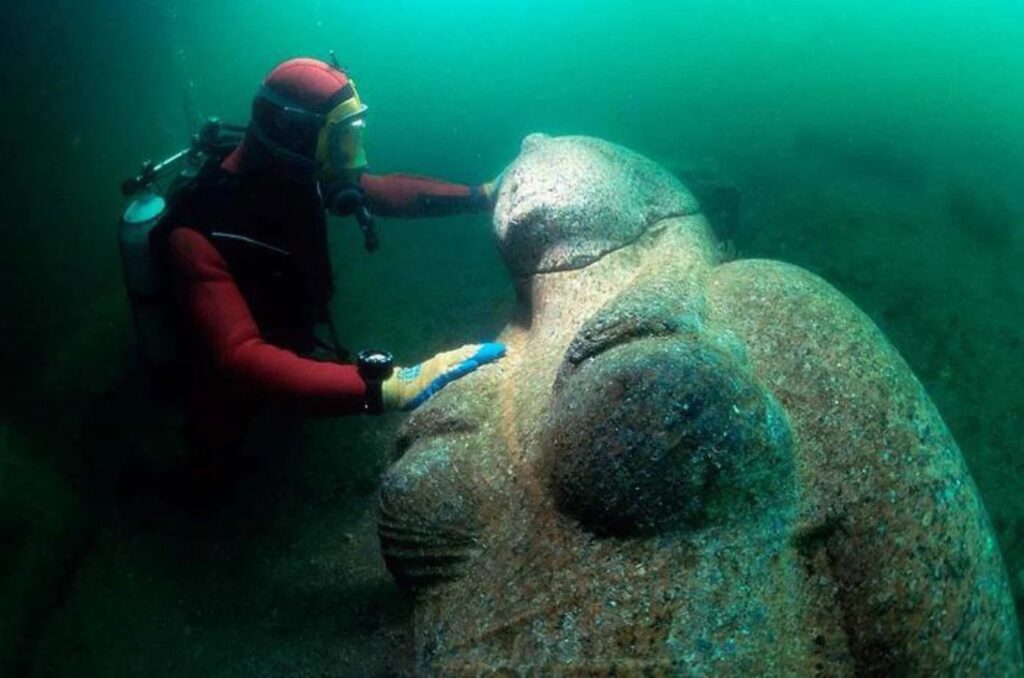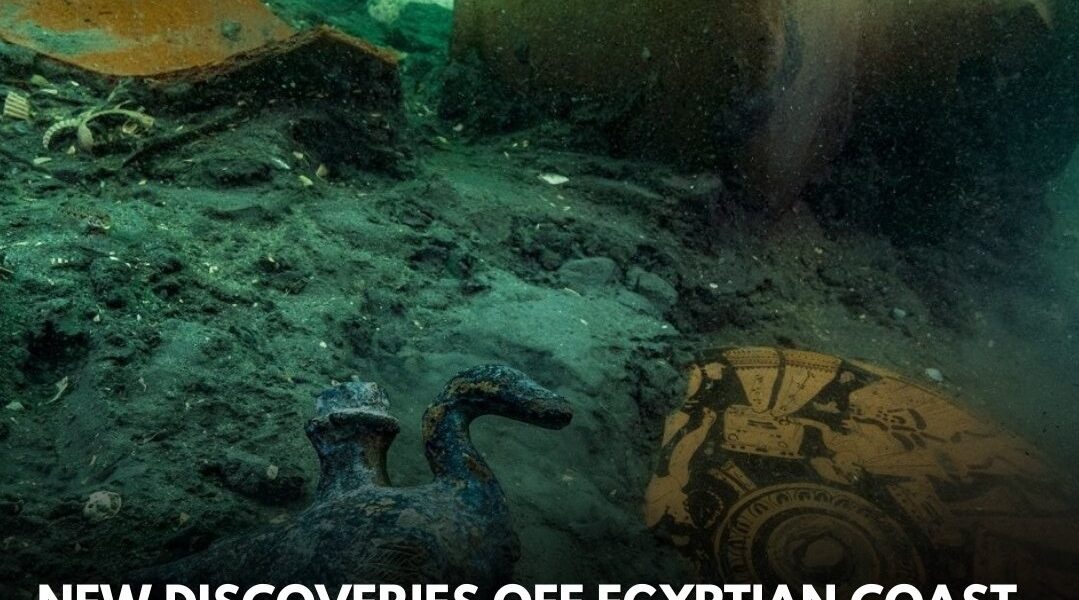Archaeologists led by Franck Goddio recently discovered temples dedicated to the Egyptian god Amun and the Greek goddess Aphrodite off the coast of Egypt, according to a report by CNN on September 19.
The team explored the ancient port city of Thonis-Heracleion in the Bay of Aboukir, where they found the remnants of the temples in the city's southern canal. The sunken city was initially discovered in 2000, and researchers continue to uncover lost treasures.

The Egyptian temple, dedicated to Amun, is believed to have collapsed during a cataclysmic event in the mid-second century BC. Rising sea levels, earthquakes, and tidal waves caused a significant portion of the Nile delta to disappear into the sea, taking the city with it. The temple was once where pharaohs gained their titles of universal kings from the supreme god of the Egyptian pantheon.
Many precious objects, such as silver ritual instruments, gold jewelry, and fragile alabaster containers, have been unearthed, showcasing the wealth and piety of the city's former inhabitants. The discovery is particularly poignant as these delicate objects survived intact despite the catastrophic events.
The ancient Greek temple
The temple dedicated to the Greek goddess of love Aphrodite was identified by a number of bronze and ceramic idols found.
This find is thought to have been particularly significant as it “illustrates that Greeks who were allowed to trade and settle in the city during the time of the Pharaohs of the Saïte dynasty (664 - 525 BC) had their sanctuaries to their own gods,” IEASM said.
A number of weapons belonging to Greek mercenaries were also found. “They were defending the access to the Kingdom at the mouth of the Canopic Branch of the Nile. This branch was the largest and the best navigable one in antiquity,” IEASM explained.


